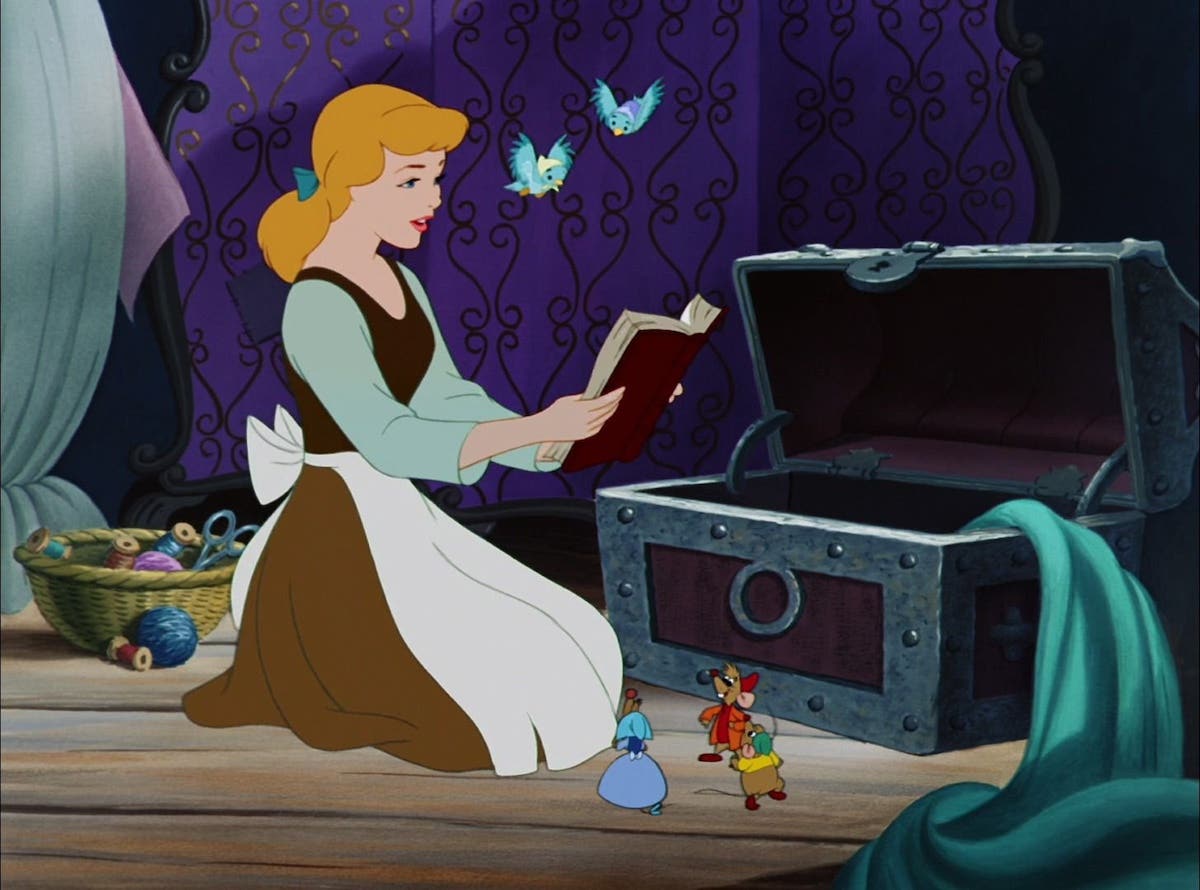WRITERS’ ROOM 101: TV Staffing Season
In today’s “Writers’ Room 101,” TV writer Eric Haywood examines the ups and downs of TV staffing season.
Eric Haywood has spent over a decade writing for network and premium cable television series including ABC’s Private Practice, Showtime’s Soul Food, NBC’s Hawaii, and the Fox drama Empire. Follow Eric on Twitter at @EricHaywood.
Nobody ever warned me about staffing season.
My first job as a professional television writer was for a premium cable show that aired its new seasons in late spring/early summer. We'd typically start writing each January, so I spent the first few years of my career gainfully employed whenever staffing season rolled around. In fact, this thing called "staffing season" was completely off my radar; I didn't know about it simply because I didn't know that I was supposed to know about it, if that makes any sense. (Pro tip: Don't expect your first agent or manager to sit you down and give you some sort of crash-course tutorial on all the things you'll need to be aware of in order to build and maintain a career. Frankly, that's not their job.)Anyway, this is how naive I was: it literally never occurred to me that the show I was writing for would one day end, and that I'd then have to run around town and take a bunch of meetings in order to land my next job. But that's exactly what happened, and suddenly one spring, I was abruptly thrust into staffing season without the slightest bit of forewarning. So let me spare you a little bit of pain by summarizing what I very quickly learned:
Staffing season is awful. It sucks. It will stress you out.
But for those of us attempting to make a living as television writers, it's also unavoidable, so going into it armed with more information than I had back in the day should make life a bit easier for many of you. That's my hope, anyway.
You already know that each fall, the major networks roll out both their new and returning shows for the season. In order to meet that annual autumn deadline, production for those shows has to be well underway during the preceding summer, which requires the writing process for these shows to begin months before that. This means each show must assemble its writing staff in the spring, so that stories can be broken and scripts written. In other words, the shows need to be "staffed." And unfortunately, there's a very narrow window of time for staffing to take place, which leads to a mad dash of agents and managers trying to book meetings for their clients, and the writers themselves doing their level best to make a good impression on everyone they meet, in hopes of securing one of those coveted positions.
For the major broadcast networks, staffing season starts approximately in late March/early April and culminates in mid-May, when the upfronts are held in New York. This is where the fall TV schedule is formally announced (with a few midsession replacement shows thrown into the mix as well), mainly for the benefit of advertisers, and everyone finds out which shows have been renewed or picked up. But there's a catch: if you wait until the upfronts to start your job search, it's too late. You've already missed the boat because the vast majority of those shows have already been taking meetings with writers (and in some cases, quietly making offers) well before the upfronts.
So let's jump back to staffing season itself. The term "season" is a bit misleading, because we tend to think of seasons as being somewhere around four months long. But staffing season, as I mentioned above, consists of a much shorter timeframe. You've got roughly two months to cram in a bunch of meetings that will hopefully result in you getting hired. And that's where the pressure comes from, because most writers tend to work themselves into a frenzy believing that if they don't land a job during staffing season, they'll have to basically "sit out" the rest of the year unemployed until next spring comes around or a miracle happens, whichever comes first. And not surprisingly, the former is often the more likely possibility. More on that in a moment.
Think of staffing season as a massive game of musical chairs, only with adults instead of children... and the adults are all screenwriters... and the chairs are jobs. Now imagine there are thousands of writers anxiously circling what are probably only a few hundred -- at best -- empty chairs, and everyone's hoping to beat the rush and grab a seat the instant the music stops.
Statistically, this means not everyone's going to get seated. That's the reality.
It's also the reason why the competition is so fierce, because nobody wants to be one of the people unlucky enough to find themselves left standing. Adding to the pressure (as if that wasn't pressure enough already) is the fact that no matter what you do, no matter how well-prepared you are or how much you "kill it" in your meetings, no particular outcome is ever guaranteed. On any given year, you still might find yourself chair-less despite having a solid track record, a stack of awesome writing samples, and the best agent in the business. Conversely, through a combination of hard work and sheer good luck, you may end up sliding into an empty seat so fast that it seems totally effortless to your peers (rest assured someone will find out you got a job and wonder, "Wait... how'd she get on that show? I couldn't even get a meeting!"). There's just no telling how things will go from year to year. All you can really do is put your best foot forward and make every script great and every meeting even greater. After that? The actual decision-making process is sadly out of your hands.
We'll talk more about the actual meeting process in a later column, but for now, what you need to know is this: the stress you'll feel is not unique. Pretty much everyone, from first-timers trying to break into the business to veteran upper-level writers who need to stay employed just like everyone else, experiences the same pressure to varying degrees. Hopefully, there's some comfort in that. Maybe not much... but some.
So you'll scour the trades, keeping an eye on which returning shows have been renewed and which new ones are heavily leaning towards getting picked up. You'll freak out because you haven't heard from your agent in a few days, but the grapevine is swirling with rumors that this show or that show is already taking meetings. You'll read tons of that year's pilot scripts, hoping to not only find one you really respond to and think you'd be a great fit for, but that it'll actually get picked up and the showrunner will like your writing enough to want to meet you. You'll binge-watch episodes of returning shows on the off-chance that you'll get a meeting with one of them, and you want to be prepared. Long story short, there's lots and lots of work that goes into staffing season. You can't simply write an amazing script and then wait for your dream job offer to fall out of the sky; you're going to have to go after it, and you're going to have to fight for it.
But it's not all doom and gloom for everyone; there are certain writers who are actually spared the torment of staffing season some years. Those lucky folks are a.) writers who happen to write for shows that don't follow the same staffing calendar as the major networks, and b.) writers who are currently staffed on returning shows, and have already been asked to return for the upcoming season. These are two of the most enviable positions to be in when staffing season gets underway, because they exempt you from the rat race. But for everyone else, the hunt is on.
Speaking of which, I should probably take a moment to mention that as cable networks continue to proliferate and streaming services like Netflix, Hulu, and Amazon move further into original scripted programming, more and more opportunities for employment are opening up. And most of these shows operate on totally different timetables, as my first job did. This means that if you don't land a job on a broadcast show by mid-May, you're not entirely out of luck. Some of these shows aren't even looking to start staffing until the fall, and others will take meetings right after the first of the year... but there's a catch: now you're competing with all the folks who didn't already land a gig during the regular staffing season go-round. Still, the upside is that the possibilities are out there, and increasingly, many of them are pretty much year-round.
Okay. So you've done your homework, your writing samples are circulating, and you're actually getting meetings. Great. But until you've got a bona-fide job in hand, you're still going to experience the stress of staffing season. What if you don't land any job? What if the showrunner you met with loves you but her show doesn't get picked up? And why does it seem like all your writer friends are suddenly juggling multiple offers, but your phone hasn't rang once?
These are all legitimate concerns, and pretty much everyone wrestles with them. One valuable tool I've learned over the years is to stay as far away from the rumor mill as possible. At a certain point, you've got to take a break from reading the trades and listening to industry gossip, because all that's going to do is raise your blood pressure. Every time you read that a certain show is a "no-brainer" for pickup or renewal, or hear how some "hot" pilot tested poorly and suddenly looks unlikely to get a series order, you're going to want to call your agent for the latest scoop. And trust me, your agent is fielding a hundred calls a day from her other clients who all want to know the same thing. It's better to resist the urge to try and consume every last bit of available information, because things can change at a moment's notice, and like I said, you won't have the slightest bit of control over them.
Another tip: steer clear of social media for a while -- or, at the very least, drastically cut back on your daily consumption of it. Trust me, nothing will ruin your day, and possibly your whole week, like waking up, logging into Facebook, and seeing an overjoyed status updates from your peers declaring, "I just got staffed on CSI: Temecula! Yay!" And then, because you're a glutton for punishment, you scroll down and see that they've gotten tons of congratulatory messages from family members and friends, including people you both know in the business. You're going to want to feel happy for your friend (and hopefully, you genuinely will), but deep down you suddenly feel like crap because hey, you need a job, too. And then you feel even worse when you remember that you're supposed to feel happy for your friend's success, but you can't stop wondering what you'll do if you don't get staffed this year. And just like that, your career is flashing before your eyes.
There's also the flip side: if you're the person who got staffed, you're going to want to shout it from the highest social media rooftops, and rightfully so. But don't be surprised if you find yourself experiencing the pangs of survivor's remorse, meaning now you feel guilty because you managed to grab one of those musical chairs but your friend -- facing her third year in a row of not getting staffed -- is down in the dumps because she has no prospects on the horizon.
Thanks for nothing, Facebook.
My point is simply this: there's more to maintaining a career as a television writer than just writing an amazing script. Yes, that's an essential first step, because without a standout writing sample, none of what I said above matters in the least. But staffing season is one of those real-world things you'll need to know about, and the sooner you arm yourself with this knowledge, the better prepared you'll be. Learn the timetable and have your script(s) ready to go long before your agent calls and says, "I need a new piece of material." Because like I said, if you wait, you're screwed. And you better believe that someone else is out there with their eye on your musical chairs seat if you demonstrate that you don't really want it.
Last thing: once the job offers do start happening, keep in mind that upper-level writers get hired first, then mid-level writers, and so on down the line. So if you're a lower-level writer, try not to freak out when you hear that a certain show that you're in the running for is making offers. Hopefully, yours is on its way.
- More articles by Eric Haywood
- Writers on the Verge: Your Screenwriting Agent or Manager is NOT Your Friend
- Your TV Guide: Crush Those Big Meetings
Get tips on crafting a stand-out pilot with Dan Calvisi's webinar
The 30-minute TV Pilot Beat Sheet: From ABC to HBO to Amazon to Netflix
TV Writers’ Room 101 by Eric Haywood: If you’ve ever wondered what goes on inside a television drama writers’ room, look no further. “Inside the Writers’ Room” will pull back the curtain and show you how “the room” functions, how ideas get pitched and stories get broken, how the writer functions on set when an episode he or she has written is being filmed, and more. This column is geared towards writers who are either actively seeking to break into television writing or have already landed their first job on staff and could use a little help navigating the unspoken do’s and don’ts. Twitter: @EricHaywood







